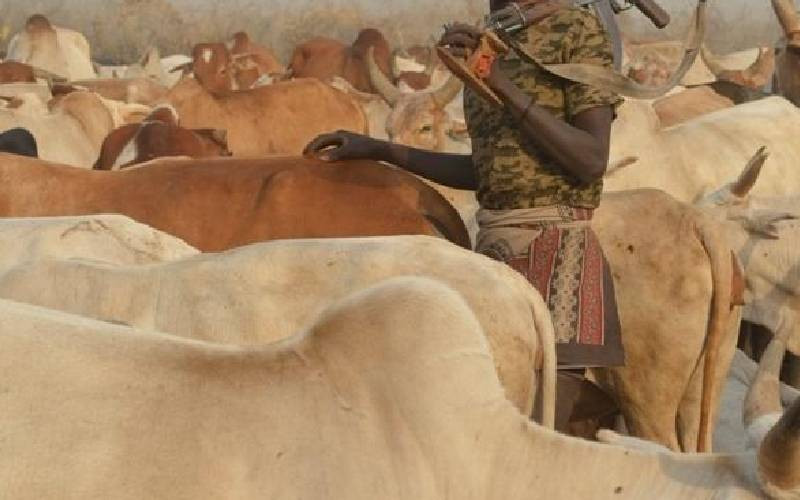While the Inspector General of Police Joseph Boinett was on a tour of duty in Baringo County last week to assess the security situation, a secondary school student was killed by bandits only a few metres away from the venue where the security meeting was being held. It is not clear whether the aggressors were expressing their disdain for our security forces with the unfortunate act.
Mr Boinett’s visit, we believe was informed by the deteriorating security situation over the last two years in the area. As recently as Wednesday, armed bandits attacked Ngorishei village in the county, killed two people and injured six others who included a policeman. The bandits are said to have made away with over 500 head of cattle towards the notorious Suguta Valley hideout.
Rampant cattle rustling has not only heightened insecurity, it has disrupted economic activity. In some cases, there is no learning as students and teachers avoid schools for fear of attacks. Consequently, Mr Boinett issued a 48-hour ultimatum to the bandits to return the stolen livestock and surrender all the illegal guns in their possession.
He warned that failure to comply with the directive would attract serious consequences, which include a police operation to forcefully repossess the firearms.
The proliferation of small arms in the area has been cause for concern and the Government’s apparent reluctance to disarm the communities has prompted the governors of Baringo and Samburu counties (Benjamin Cheboi and Moses Lenolkulal) to ask that civilians get armed to ward off the attackers.
The truth is, there is heavy security in the area, but cattle rustling continues unabated; which raises doubt on the police’s resolve to end the perennial killings and cattle theft. In 2012, a contingent of 106 police officers responding to a call for assistance after cattle rustlers raided a village and made away with several head of cattle, ran into an ambush in the Suguta Valley.
At least 42 of them died in the botched operation: the cattle was not recovered and neither were the guns and bullets taken from the police. It emerged during investigations that the operation was poorly planned. We believe that lessons have been learnt.
As Mr Boinett plans to disarm the communities in the affected area and go after the bandits to recover the stolen cattle, proper planning must be made to avoid a situation where security forces rush after armed bandits without enough back up and proper field command and coordination. In which case, air support is very crucial for the forces going into the notorious Suguta Valley.
Also, the locals should be won over in the efforts to secure the peace; they should be made to know they have a bigger stake in the peace; they can also point out the few rotten apples in their midst. On the other hand, should voluntary surrender of arms fail, then the police have every reason to employ the use of reasonable force. The contention with police or military operations is that those who bear the brunt are hardly the criminals or their accomplices, but the already maimed public.
Police and army raids pay little attention to human rights and constitutional freedoms which are more often than not trampled upon. Security forces have been accused of rape, and of unleashing terror in villages through indiscriminate beatings of people found in the vicinity of the operations, maiming and even killing others. Occasionally, theft of valuables from homes has been reported.
This ought not to happen.
Citizens must feel secure that the police and the army care for them and that security is their responsibility as well.
 The Standard Group Plc is a
multi-media organization with investments in media platforms spanning newspaper
print operations, television, radio broadcasting, digital and online services. The
Standard Group is recognized as a leading multi-media house in Kenya with a key
influence in matters of national and international interest.
The Standard Group Plc is a
multi-media organization with investments in media platforms spanning newspaper
print operations, television, radio broadcasting, digital and online services. The
Standard Group is recognized as a leading multi-media house in Kenya with a key
influence in matters of national and international interest.
 The Standard Group Plc is a
multi-media organization with investments in media platforms spanning newspaper
print operations, television, radio broadcasting, digital and online services. The
Standard Group is recognized as a leading multi-media house in Kenya with a key
influence in matters of national and international interest.
The Standard Group Plc is a
multi-media organization with investments in media platforms spanning newspaper
print operations, television, radio broadcasting, digital and online services. The
Standard Group is recognized as a leading multi-media house in Kenya with a key
influence in matters of national and international interest.








